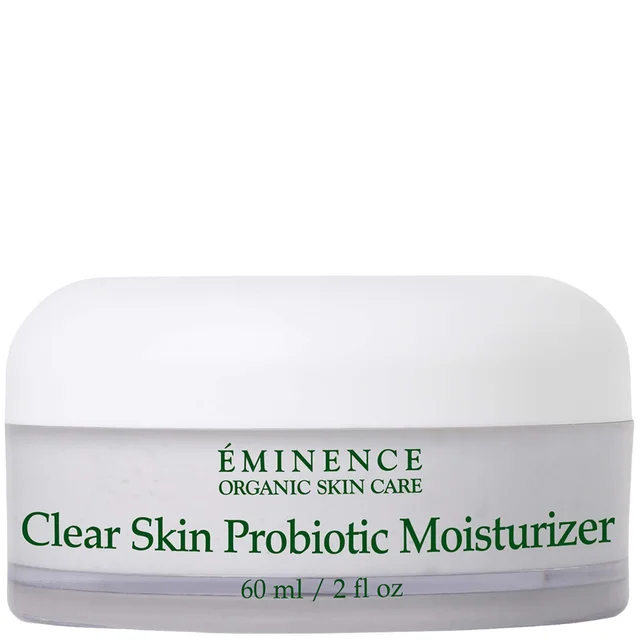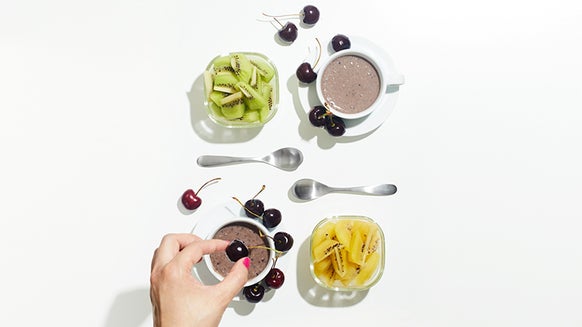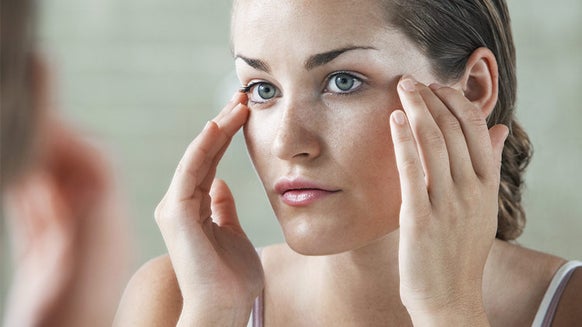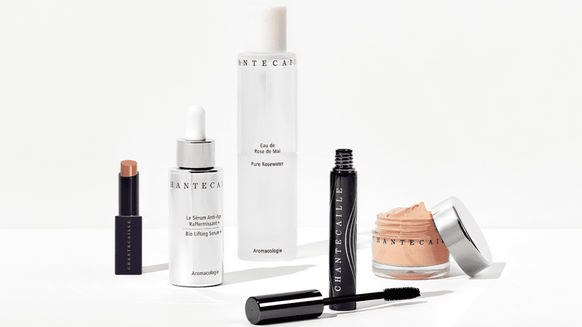Can Probiotics Really Clear Your Skin? We Asked the Experts.
Every now and then, the skin care world gets taken over by trends and ingredients that people suddenly can’t get enough of. Some appear to be unlikely heroes at first but have since gone on to prove that they truly are skin care powerhouses (like coconut oil, for example). Probiotics belong to that category of ingredients that may raise some eyebrows or prompt a little uneasiness. After all, slathering your face with live bacteria doesn’t exactly sound appealing or comforting. (Fun fact: Millions of microscopic bacteria already call your body home.)
What Are Probiotics?
Most of what people know about probiotics come from yogurt commercials—they’re the “friendly” bacteria that make sure your gut stays healthy, balanced and toxin-free and your immune system remains in top form. But what exactly are probiotics, and more important, are they really good for your skin?
“Probiotics are micro-organisms that restore good bacteria to the digestive tract,” says registered nutritionist and dietician Alana Kessler. “They can be found in supplement forms such as powders or pills and in fermented foods like kefir, cultured vegetables like sauerkraut and miso, fermented soybeans, yogurt, apple cider vinegar and raw cheese.”
“There are numerous strands of probiotics that are beneficial to our health. The most common groups are called lactobacillus (lactic acid) and Bifidobacterium,” adds registered nurse Rebecca Lee. Lactic acid is known for its anti-aging and anti-acne benefits while bifidobacterium plays a key role in strengthening the immune system.
How Do Probiotics Benefit Your Skin (and Hair)?
Since the 1930s, experts have been positing the gut-brain-skin axis theory, believing that a person’s emotional state—whether it’s anxiety, stress or depression—can alter the functions of the gastrointestinal tract and cause bad or unhealthy bacteria to build up. This, in turn, causes inflammation that leads to breakouts and flare-ups for those with skin conditions like rosacea, acne or eczema. Hence, the importance of keeping probiotics in your diet.
“Probiotics aid in creating a healthy gut, so there is less toxicity being reabsorbed into the bloodstream,” shares Kessler. “Toxins inhibit the absorption of important vitamins, minerals and nutrients and interfere with the body’s ability to rid itself of necessary waste, causing inflammation.”
When applied topically, probiotics have also been found to provide numerous benefits. “Like dietary probiotics impact your stomach’s biome, probiotic skin care products try to promote a healthy skin biome by influencing the types of bacteria that live on your skin,” explains board-certified dermatologist Janet Prystowsky, M.D.
Some of the known benefits of probiotics on skin and hair are:
Improve Inflammatory Skin Conditions
Board-certified dermatologist Dr. Franziska Ringpfeil says probiotics have “demonstrated a stabilizing effect in inflammatory conditions such as acne and rosacea.” According to the American Academy of Dermatology, a study has shown that probiotics have a calming effect on the skin and prevent the immune system from attacking other living micro-organisms, thus reducing flare-ups.
Strengthen the Skin Barrier
Probiotics have been shown to reduce the threat of infection and reinforce the skin’s natural defenses against bad bacteria, pollution and free radical damage. “By producing antimicrobials and compounds that reduce the skin’s pH, probiotics also protect your skin from transient pathogens that could disrupt normal skin function,” says Dr. Prystowsky.
Anti-Aging
Topical probiotics promote better moisture absorption and aid in delaying the signs of aging. Lactic acid helps reduce the appearance of wrinkles, tightens pores and contains exfoliating properties that improve dry and dull skin. They also contain nourishing properties that soothe sun-damaged skin.
Promote Healthy Scalp
When applied to the scalp, Dr. Ringpfeil says probiotics can help soothe irritations and even indirectly restore hair growth. In fact, a study has shown that feeding probiotic yogurt to mice resulted in thicker, shinier and more lustrous fur.
How to Use for Best Results
When choosing probiotic supplements, naturopathic physician Heather Sandison, N.D., says it’s always best to get a stool test “to determine the right bugs to balance” as each person has a unique gut microbiome. “The right balance of probiotics in your gut help you to digest and assimilate nutrients so that your hair, skin and nails have the nutrients they need to look and feel healthy,” Dr. Sandison adds. “For best results, I recommend rotating high-quality, high-dose probiotics both topically and orally.”
Consistency is also important, says Kessler, and so is choosing products that have at least two strands of probiotics. She recommends doubling up on the dosage should you experience flare-ups in your digestion or skin.
“Our bodies have millions of normal, healthy bacteria. When these bacterial colonies are growing and inhabiting the GI system, skin, mouth and body, they prevent ‘bad bacteria’ and fungi from taking over. That is the key. We want the good in and the bad out,” adds facial plastic surgeon Benjamin Caughlin, M.D., F.A.C.S.
It’s time to add some good ol’ probiotics to your beauty routine. Here are our top picks!
3. Eminence Organic Skin Care Clear Skin Probiotic Masque 2 fl. oz

Janeca Racho is a Journalism graduate with over 15 years of writing experience. After getting her start in public relations and advertising, she made the switch to freelance writing and began working for various lifestyle, fashion, and travel brands. Her love for all things skincare has led her to beauty reporting and research for the last ten years. Writing for several hair and beauty blogs, she reports on anti-aging staples, trending brands and products, must-have ingredients, and health and wellness.










